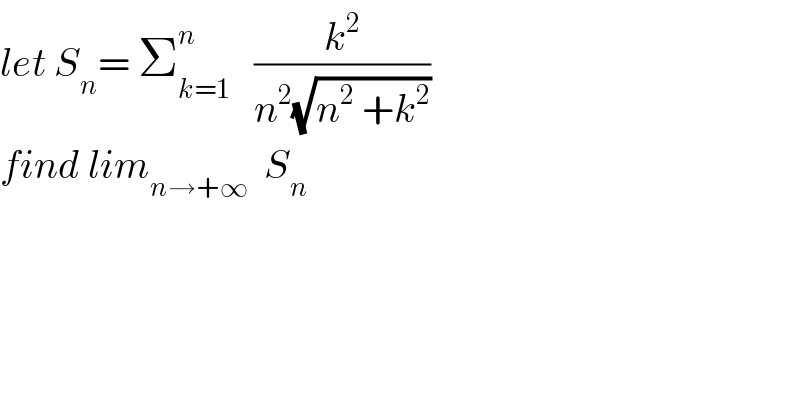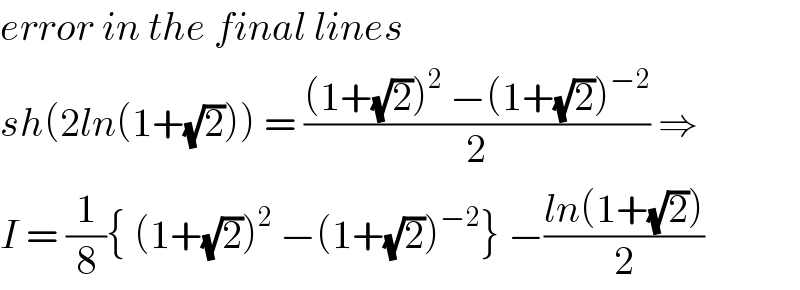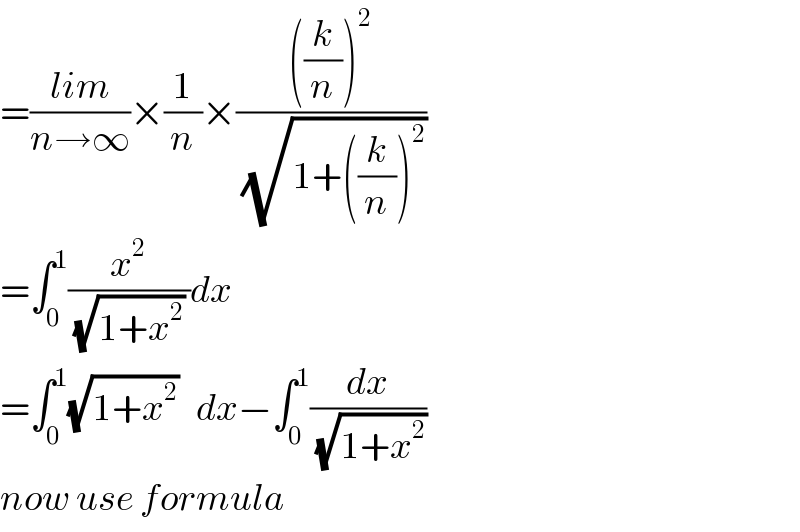
Question and Answers Forum
Previous in Relation and Functions Next in Relation and Functions
Question Number 35689 by prof Abdo imad last updated on 22/May/18

Commented by prof Abdo imad last updated on 22/May/18
![we have S_n = Σ_(k=1) ^n (k^2 /(n^3 (√(1+(k^2 /n^2 ))))) = (1/n) Σ_(k=1) ^n ((k^2 /n^2 )/(√(1+(k^2 /n^2 )))) so S_n is a Rieman sum and lim_(n→+∞) S_n = ∫_0 ^1 (x^2 /(√(1+x^2 )))dx =I changement x =sht give t=argsh(x) and I = ∫_0 ^(ln(1+(√2))) ((sh^2 t)/(cht)) ch tdt = ∫_0 ^(ln(1+(√2))) sh^2 t dt =(1/2) ∫_0 ^(ln(1+(√2))) (ch(2t)−1)dt =(1/2) ∫_0 ^(ln(1+(√2))) ch(2t) dt −((ln(1+(√2)))/2) =(1/4)[ sh(2t)]_0 ^(ln(1+(√2))) − ((ln(1+(√2)))/2) =(1/4)sh(2ln(1+(√2))) −((ln(1+(√2)))/2) sh(2x)= ((e^(2x) −e^(−2x) )/2) ⇒ sh(2x)=(((1+(√2))^4 +(1/((1+(√2))^2 )))/2) I = (1/8){ (1+(√2))^4 −(1+(√2))^(−4) } −((ln(1+(√2)})/2)](Q35721.png)
Commented by prof Abdo imad last updated on 22/May/18

Answered by tanmay.chaudhury50@gmail.com last updated on 22/May/18

